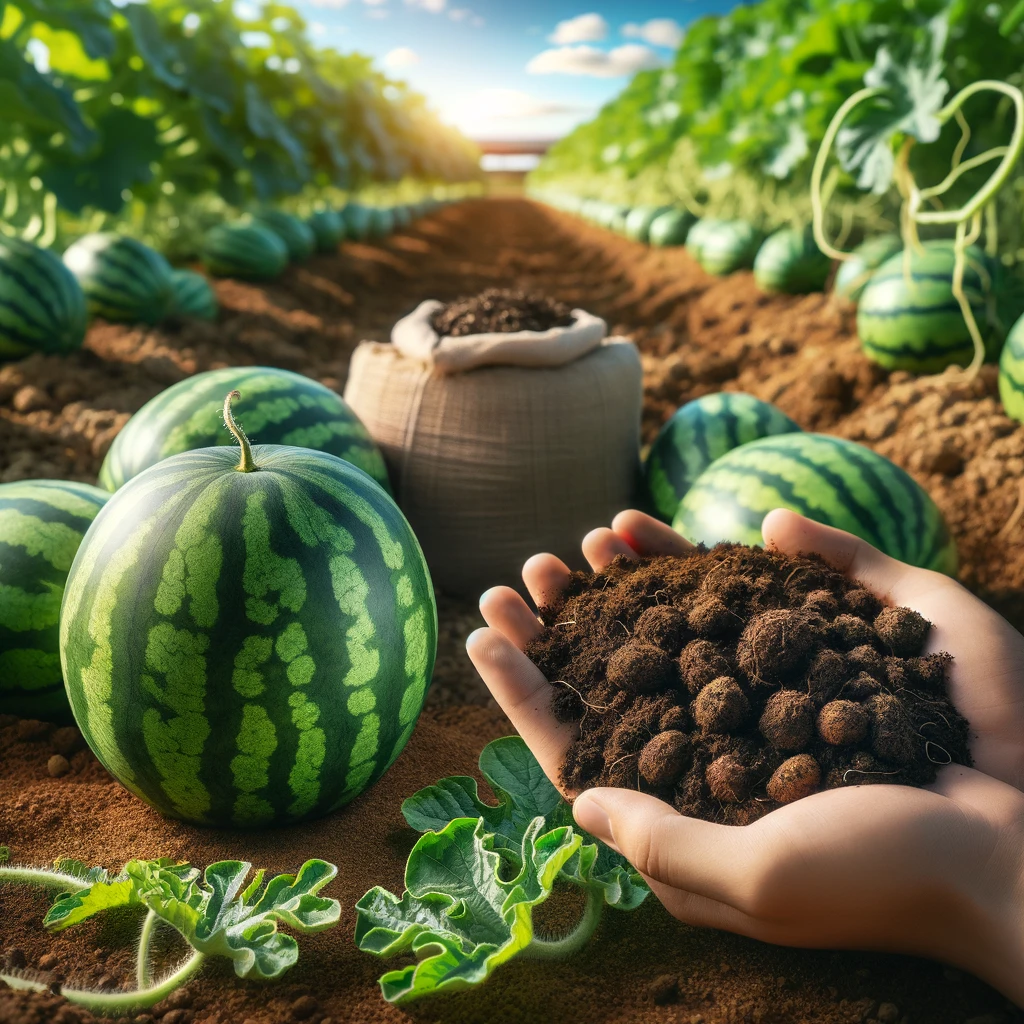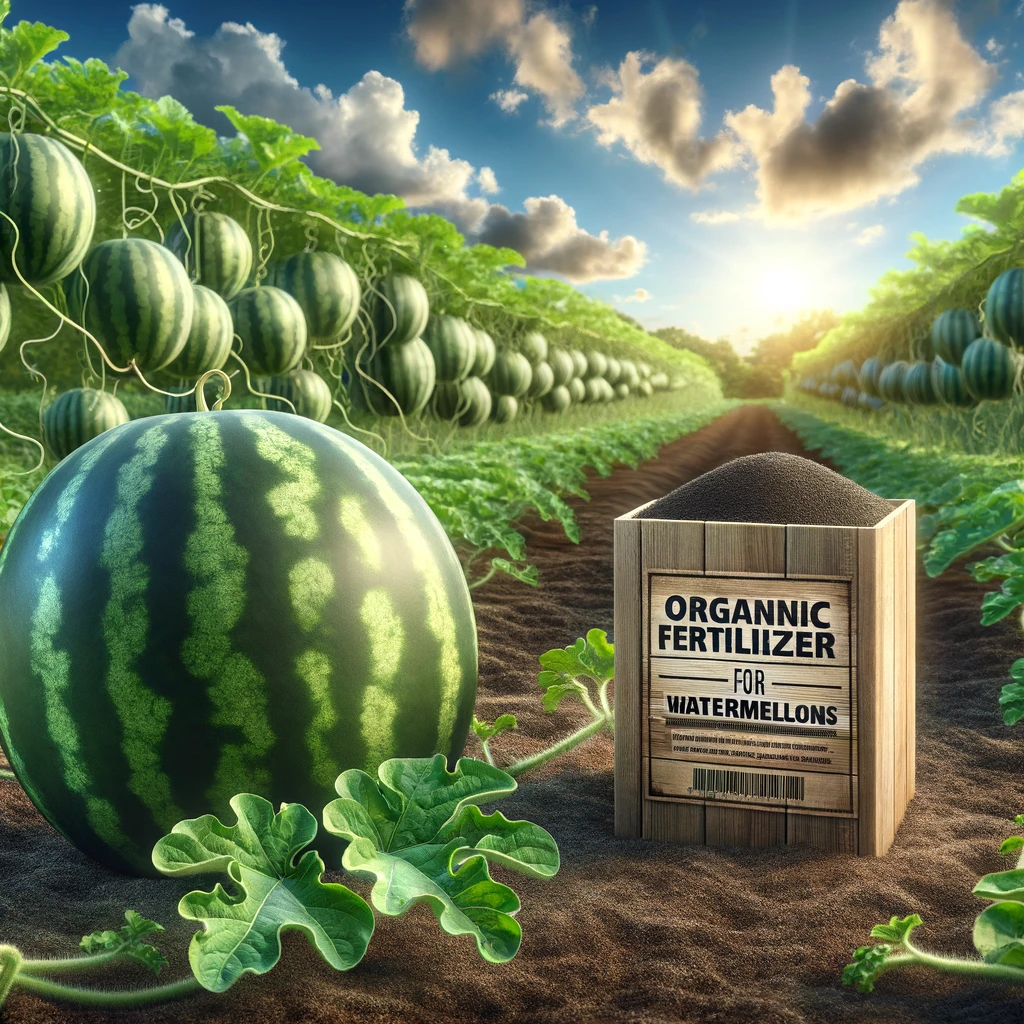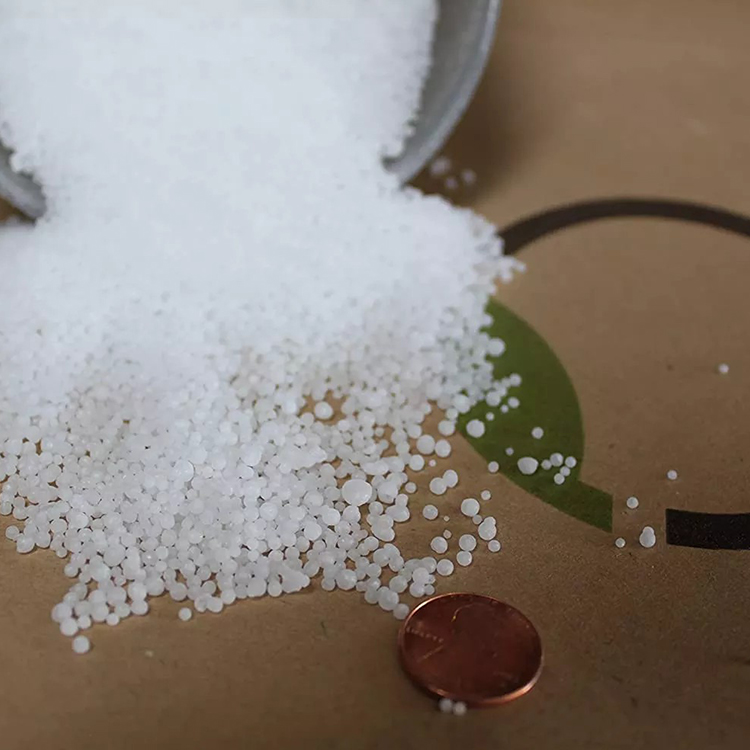Introduction to Organic Fertilizers for Watermelons
While large and juicy and good are important, the potential to be sweet is what should be your main focus as you choose the best fertilizer for your watermelon – organic or synthetic. An organic fertilizer for watermelon may not necessarily be better than a synthetic fertilizer for watermelon. However, your decision to use an organic fertilizer for your watermelon crop or a synthetic fertilizer will have a tremendous impact on the health and productivitiy of your watermelon crop. Best fertilizer for watermelon is one of those strategic decisions that you will be making in your sustainable farming efforts.
Organic fertilizers provide a number of advantages over their synthetic counterparts, primarily because they are naturally occurring, slow-release fertilizers that meet plants’ needs over time. Dr Susan Leigh, agronomy specialist with the University of Maryland’s Department of Agriculture and Natural Resources, explains: ‘Organic fertilizers are made from different natural sources that are not only safer for the environment but also aid in the improvement of soil physical condition (soil structure and pore space), soil biological condition, and soil chemical condition.’ Both of which are critically important for a plant that has large cabbagelike roots and a relatively thirsty, heavy-fruiting habit.
That is very different from most synthetic options. In’organic fertilizers’ we provide the healthier food for plants – a balanced diet with all the natural ingredients, which brings good growth but no chemical residue in the soil and no chemical input could hurt your crop, nearby wildlife, and even consumers one day. And further the organic fertilizers are not only better for plants’ growth but for building a healthy ecosystem as well. That is why when growing a watermelon – people should choose the best organic fertilizer for watermelon in order for the best growth period with keeping its natural taste and safety to human health.
Understanding the Nutritional Needs of Watermelons
Watermelons, like all plants, need certain nutrients if they are to grow and bear fruit to their fullest potential. Understanding their natural needs is the first step towards choosing the right organic fertilizer for your watermelon patch. Like all plants, the juicy fruits need a complete and balanced diet of fertilizers. Their most important needs are nitrogen (N), phosphorus (P) and potassium (K), which all play different parts in the life cycle of the plant.
As a young plant grows, nitrogen fuels the creation of leaves and vines; phosphorus encourages the development of roots; and later, when female flowers make their way across the vine, phosphorus helps watermelons set and carry to maturity. Potassium also promotes root development, but further assists watermelon in the vital process of sugar and starch synthesis, helping to make the fruit sweet and flavour-filled.
Ideal organic fertilizer for watermelon will deliver these nutrients in a form readily available to the plants. Lucas Mendel, a leading soil scientist and watermelon expert, points to the slow and steady release of nutrients as a key advantage to using organic fertilizers. ‘Organic amendments break down gradually to give nutrients in a way that mimics nature, that keeps the tree’s nutrient demand balanced instead of causing the tree to spike the nutrient uptake and risk nutrient burn patterns, and in a way that helps the tree grow more naturally,’ he explains.
Furthermore, organic manures contribute to soil health by enhancing microbial activity by breaking down nutrients and improving soil structure; improved soil supports the plant by hosting the root system in a healthy manner, ultimately leading to better nutrient and water uptake for the plant’s growth that places it in a better position to thrive against pests and diseases.
So, by opting for a fertilizer to cover these needs, you would transform your watermelons from being as large and juicy as possible into something that also has a flavour, making an organic choice the best for both quality and sustainability.

Top Organic Fertilizers Suitable for Watermelons
The watermelon yield greatly depends on the type of watermelon organic fertilizer that a farmer is choosing to apply. In the upcoming discussion, we will make a trip into several of the most effective watermelon plants organic fertilizer, each of them promising distinct benefits resulting in accelerated growth and irresistable flavour of the fruit.
- Fish Emulsion: A good nitrogen-heavy liquid fertilizer, fish emulsion helps promote vigorous watermelon vine growth and large leaves, which are necessary for the plant to photosynthesise during its vegetative growth phase. Fish emulsion is also loaded with trace minerals that lead to a healthier more resistant plant.
- Seaweed Extracts: A combination of numerous micronutrients can be applied to the fruitlet to improve flowers and fruit set; these products are made from seaweed. Generally high in natural growth hormones, seaweed extracts can help loosen fruit to optimise size and flavour.
- Composted Manure: A composted animal manure (chicken or cow) adds just a bit of nitrogen, phosphorus and potassium, along with organic matter that improves the soil’s structure and water-holding capacity – things that are important for watermelon’s extensive root system.
- Bone Meal: Bone meal is high in phosphorus and would be a good choice during the bloom and fruiting stages for watermelons as it would help them develop big healthy fruits, and help the roots develop.
- Alfalfa Meal: This natural fertilizeris made from the alfalfa dioica plant. It contains slow-release nitrogen and a wealth of trace minerals and the growth stimulant triacontanol. It is a favourite with watermelon plants for better vigour and disease resistance.
Emily Carter, an expert in organic horticulture, says these fertilises have advantages over synthetic ones: ‘The best organic fertilizer for watermelon encourages growth while retaining the natural sweetness and texture of the fruit, as these fertilizers provide nutrients in the most natural form.
Choosing between the two options needs to consider the characteristics of watermelon crop at different growth periods as well as initial soil health. By using these kinds of organic fertilizers in watermelon cultivation, they can greatly enhance not only the yield but also the quality of watermelons by natural ways.
Application Techniques for Optimal Results
To benefit fully from these natural nutrients, you need to make sure that they are used in the right way. Here are some techniques to make sure you get the best from your organic fertilizer for watermelon:
Timing and Frequency of Application: Political science depends on timing. If you apply fertilizer too early or too late, the results can be erratic. For vine growth the season, apply fertilizer early. When the plant is blooming, focus on feeding fertilizers high in phosphorus and potassium. Dr. Harold Greene tells us: “Regular feeding at intervals of 4-6 weeks during the growing season is important … This helps to balance the nutrient needs of the watermelon plant, mimicking more closely the natural uptake of the nutrients from the soil.”
Method of Application:
- Soil Application: The most common method is direct application into soil around the cropped plants, such as side-dressing in rows between watermelons or incorporated into the soil at the time of planting.
- Foliar Feeding: Spray some of the liquid fertilizer onto the watermelon leaves. This is a very effective method for providing the watermelons with some extra nutrients while they are growing. It is also a good way of giving a quick nutrient boost in the middle of the week towards the end of the growth cycle. It is best applied between dawn and dusk because the sun can burn the plants if the foliar feed is applied in the middle of the day.
- Integration with Irrigation: To gain further benefits, combining fertilizer application with irrigation is a further good practice. Often referred to as fertigation, the system precision-doles out nutrients in an even way, reducing labour. In high-value, high-production settings, such as nurseries or market-oriented operations, fertigation is highly useful – given that the irrigation system is designed well, with just the right set points, to avoid overapplication of nutrients, resulting in runoff and nutrient losses.
Caveats: Organic fertilizers are like powder, and you might want to wear gloves and some other kind of protective gear with safety guards. Of course when applying fertilizer, always make sure to wear a mask or something to avoid breathing in the dust. Also be careful about using something that is clean and of good quality. When storing or handling them, make sure you are handling organic fertilizers in accordance with the safety standards to avoid contamination or a risk of having decomposition of the nutrients.
With these applications of the best organic fertilizer for watermelon, gardeners and farmers will be better equipped to improve plant growth, fruit size, and taste, while still maintaining a healthy ecosystem.

Monitoring Watermelon Growth and Health
To pinpoint instances where your watermelon plants are well-utilizing the best organic fertilizer for watermelon, it is necessary to track the development and health of your plants every day. Below are a few telltale signs and ways of gauging the effectiveness of your watermelon fertilizer application and learning to adjust your practices as necessary.
Signs of Beneficial Fertilizer Impact:
- Vigorous Growth: Watch out for the vine growing fast and the leaves spreading out, which means your plant is getting sufficient nitrogen from the fertilizers.
- Healthy Flowering and Fruit Set: Will the plant flower well and have a good fruit set? If your plant is getting enough phosphorus and potassium, then, yes, you will produce a lot of flowers, which will lead to a good fruit set. Watch those flowers open and start to set fruit.
- Better Quality Fruit: Extra sweetness and size and fuller fleshed fruit can be seen when the watermelons start to develop, showing clearly that the essential ingredient in the fertilizer – potassium – is boosting sugar production and fruit growth.
Addressing Common Growth Issues:
- Nutrient Deficiencies: If your plant becomes yellow or fails to grow well, you might have a nutrient deficiency. Adjust your fertilizer regime until it has a balanced availability of nutrients.
- Over-Fertilization: Symptoms such as leaf burn or excessive growth could indicate over-fertilization; fertilizer could need to be applied less frequently or at lower concentrations to prevent nutrient overload and toxicity.
Adjusting Fertilizer Practices Based on Plant Feedback and Environmental Conditions:
- Periodic Soil Tests: I get it: you’re probably not going to do soil testing, but if you want to take a deep dive into protective crop inputs, you first need to know how much of what nutrients are already in your soil. Broad-spectrum tests let you know whether you have adequate nutrient levels and pH levels, so you can select the right fertilizer and use the correct amount.
- Weather Factors: Adjust fertilizer application rates based on rainfall and temperature. For example, above-average rainfall increases the chance of leaching, so fertilizer application should be increased slightly to account for nutrients lost.
- Stage Adjustment of Plants: Fertilize plants based on fruit or flower development stage. Use commercial fertilizer that has more phosphorus and potassium (K) during flower and fruit development stage because both elements are greatly needed during these key periods.
You only need to pay attention to the growth of the sweet watermelon and adjust the timing of fertilization according to the growth stage of the watermelon, so that the watermelon and the best organic fertilizer for watermelon can complement each other and produce the best result. The sweet watermelon will bring you a sweet smile.
Conclusion
Watermelon is a crop that needs a clean fertilizer . How to choose the correct organic fertilizer for watermelon and how to apply. In terms of quality, quantity and flavor of watermelon, the cultivation process is very important. From the seedling to the seedling stage, using the right fertilizer at the right time can improve the quality and production of watermelon.
This involves monitoring the soil, intuitively observing plant feedback, and using seasonal adjustments for the various factors (climate, plant lifecycles, etc) that sandbox the growth environment so that the dynamic interplay and growing contributions of the fertilizers are amplified. This requires paying attention to soil sampling results, and also to seasonal adjustments for weather conditions and plant development stages.
It is the combination of these organics fertilizers and a methodical approach to agriculture that allows watermelons to grow not only sweetly, but in a clean, Earth-friendly, way. It is the combination of these organics fertilizers and a methodical approach to agriculture that allows watermelons to grow not only sweetly, but in a clean, Earth-friendly, way.
Here are three scholarly references related to “best organic fertilizer for watermelon”:
- Effect of Fertilizer Application on Watermelon Growth – This study discusses the role of dissolved organic matter in watermelon growth and the interrelationships among growth, nutrient content, and microbial diversity in organic soilless growing systems.
- What Kind of Fertilizer for Watermelon: Optimal Nutrients for Sweet Growth – This article details the crucial nutrients for watermelon plants, emphasizing the optimal NPK (Nitrogen, Phosphorus, Potassium) ratio at different growth stages to enhance foliage and fruit development.
- Organic Fertilizer Type and Dose Affect Growth, Morphological and Biochemical Traits in Watermelon – This study evaluates how different types and doses of organic fertilizers affect the growth and quality of watermelon, providing insights into how organic inputs compare to chemical fertilizers under various conditions.







